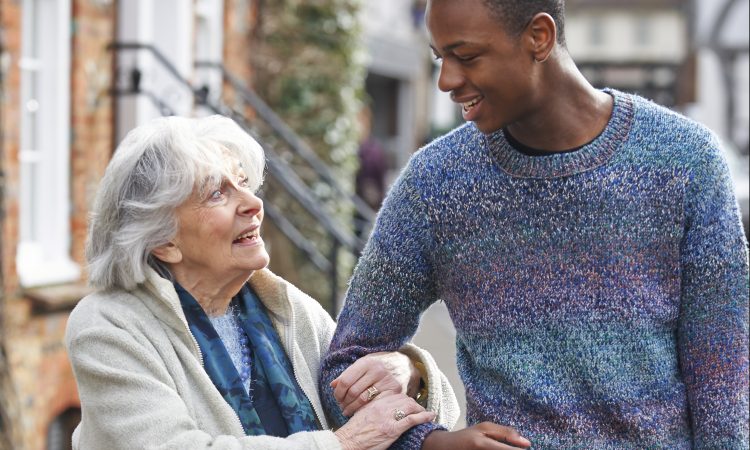
10 GOOD DEEDS THAT TAKE LESS THAN 10 MINUTES
The thought of doing a good deed or making a positive impact on the world can be very inspiring.
Very often though, we wind up telling ourselves that turning these good intentions into concrete actions will require time, money and resources that we don’t have available at the moment. So we put them on the back burner.
But believing that it can only take a grand gesture to make a real difference in the world only winds up self-sabotaging our true potential to become who we genuinely want to be, to manifest our very Best Self.
And, in fact, bringing more kindness into the world can take far less time, money or effort than you may realize. Very often, the only real resource you need to follow through is a simple change in your perspective: the recognition that it’s often the smallest gestures that can have the most significant reach and impact. The understanding that you don’t have to transform your entire life to be a “do-gooder”, because your life is already full of constant opportunities to do acts of kindness that find you, each and every day, and require barely any extra effort or expense. The certainty that all your acts of goodness, no matter how small or how subtle, create positive ripple effects that spread even more goodness throughout the world. The shift away from defining “good deeds” as acts that must take something away from you, to defining them as acts that give you the opportunity to be the person you want to be. The experience of gratitude when performing kindness. The realization that it’s not the cost, time or effort that gives an act its value or that turns it into a “good” act – rather, it’s the spirit of love and kindness that was invested in the act that makes a truly significant, indelible and eternal mark in the lives of those around you.
Here are some uncomplicated acts of kindness that you can practice on a regular basis, increasing the amount of love in the world while bringing more meaning, value and satisfaction into your own life, every single day.
Double what you’re already cooking.
Once a week, double the batch of what you are already preparing for dinner that night (especially soups, stews and baked goods). Then, simply freeze the second portion and label it “Made with Love, For You”. When someone you know falls ill, brings home a new baby, returns from vacation, moves to a new home, is going through hard times, is struggling financially, etc., deliver a “Made with Love” meal.
There are many times in life when having a home-cooked meal requires more than someone has to spare, but can make a world of difference in how someone feels about themselves and their lives.
Give the chance to give.
Regularly calling or visiting your parents and grandparents means so much to them. And making a point to add this one small act – an act that gives others a chance to also experience the joys of giving – brings them even more.
This is because our sense of value, importance and relevance in the world largely comes from feeling like we have something positive to contribute to others, and that these contributions are needed, valuable and appreciated. That’s why giving to others, especially the people we love the most, triggers a sense of happiness and significance in our lives, while feeling unneeded or unable to positively contribute can lead to sadness or depression. Just as you feel good giving to others, others enjoy feeling like givers as well.
So when you call or come to visit your parents or grandparents, make a point of asking for something that you know is (easily) in their power to give you, and is something they’ll enjoy giving. Ask for their opinion on a new item you just purchased. Ask advice on something that’s challenging you. Ask for tips in a subject area they take pride in, like cooking, or repair, or home décor, or parenting, or business, etc. Ask for their thoughts on a decision you’re considering. Ask them to tell you a story about their childhoods or your own childhood.
Giving someone else the chance to be a giver is one of the greatest gifts you can give someone.
Bring someone else along when you walk your dog.
Walking your dog is a great chance to bond with your pet, to get some fresh air, to get some brief exercise, to de-stress or to take a couple minutes to be contemplative. Ask someone to come do this “chore” with you who might also benefit from these things as well, and who will also appreciate being invited out to spend some time with you and a gentle animal, no matter how short.
When heading out for your daily walk with your dog, take along a parent or grandparent, a lonely or elderly neighbour, a sibling, a friend who could use some conversation, etc.
Donate your old phone to help survivors of domestic violence.
You can help victims of domestic violence while also helping to keep old electronics out of landfills. Donating your old phones and electronics to the National Coalition of Domestic Violence is a simple process. Cellular Recycler refurbishes and resells your old phones and electronics, and donates a portion to the NCDV.
Do your neighbor’s yard too.
Some chores just have to get done every week, like taking your trash down to the curb, or mowing your grass, or raking your leaves, or shoveling snow from your driveway. They can feel cumbersome, but fortunately, they don’t tend to take very long.
So while you’re already out there in full stride, it often doesn’t take more than just a handful of extra minutes to do your neighbour’s side as well. This small and random act of kindness will be a welcome surprise, and has the power to transform an otherwise indifferent relationship between neighbours into one of tremendous warmth, respect, help and future friendship.
Take your evening walks with a trash bag.
While taking your regular evening stroll around the neighbourhood, or taking your kids to the neighbourhood park after school every day, or walking down the block to pick up your daily mail, or walking your dog, etc., bring a trash bag with you (and maybe some gloves too). Pick up any litter or recyclables you spot on the road along the way, and dispose of them properly when you get home.
This small tweak has the power to tremendously improve your neighbourhood, your community and your ecosystem while simply going about your usual routines.
Write one thank you note every day.
In addition to the regular “thank you’s” that you casually dole out in conversation every day, make a point to thank one person a day in writing. Writing “thank you” (with a brief sentence about what it is that you are thankful for) in a text, in an email, in a note or in a letter to someone takes hardly any time, but it can have a tremendous impact on both the writer and the receiver. It helps you see your entire day differently, forcing you to reflect back and recognize a kind act or person that you may have otherwise taken for granted that day. At the same time, being on the receiving end of a “thank you” note feels terrifically validating, uplifting, and motivates future acts of kindness.
Pick up two.
You may feel that donating a large sum of money to a cause or to helping someone is beyond your means right now. But you can help to fill another person’s needs with small purchases in your daily life that are more manageable for you, and may even feel hardly noticeable.
When buying your morning coffee or muffin on your way to work, buy two, and give the second one to a homeless person on the corner, or to the bus driver, or to a co-worker, or to a stranger that you pass that looks tired or appears to be feeling low. When shopping at the grocery store, pick up two packs of your favorite cookies or a simple bouquet of flowers on your way to the check out, and simply drop it off at the doorstep of a loved one (anonymously, or with a quick note) on your way home. When picking up needed toiletries, buy one or two additional small items each week – an extra shampoo bottle, or an extra shaver, an extra bar of soap, an extra tube of toothpaste and toothbrush, an extra roll of toilet paper, etc. Collect the spares in a backpack or shopping bag, and over time (before you know it), it will be full of items that a struggling or homeless person might greatly benefit from. Give this bag of toiletries to someone who needs it, and then start gradually filling up a new bag again.
Hold the door.
Holding the door open for someone behind you, helping someone with cumbersome bags or parcels, or standing up so another person can sit down is a double opportunity for both giving and taking. Doing these small acts for someone else helps them physically, while also uplifts them emotionally with the courtesy, respect and care for their well-being that a stranger just showed them.
On the other hand, performing these acts is also an opportunity to experience tremendous personal gratitude for having the health, strength and physical ability to stand when someone else may need to sit, to carry something that someone else may find heavy, and to help someone go forward with greater ease who may otherwise be left behind struggling.
No trash, only treasures.
When de-cluttering your home, resist the urge to throw away any clothing or items that are still in good condition, good repair and functional (and look into sustainable ways of recycling and disposing items that don’t fit the bill). Place the good items into a closed box, put it on the curb and send out the word via social media or other means that there is a box of good items (list some of the items) available to anyone who wants to pick them up, anonymously and unseen. There are people silently struggling in every type of social circle who may feel ashamed to ask for help; giving to people in a way that allows them to preserve their sense of dignity is the greatest way to give.
If the box is still there by the end of the week, donate it to the charity of your choice.













